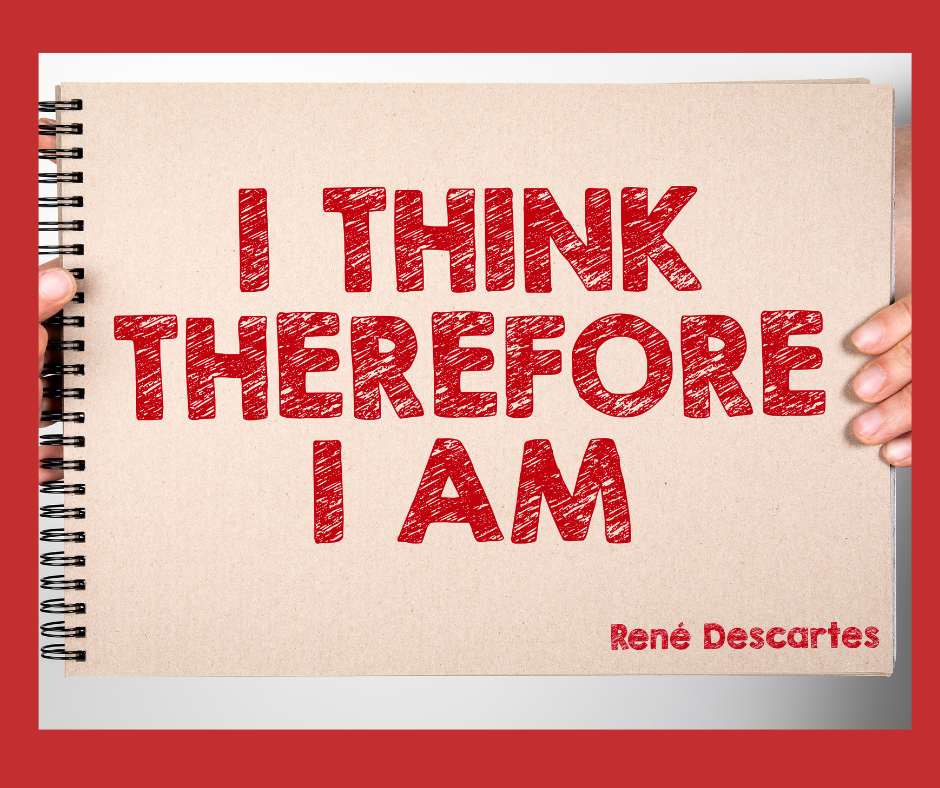A Short History of Mind-Body Dualism (Part 1)
Jan 24, 2023
At Religion for Her we seek to lift up the full person (body & soul) as we engage with scripture. We desire for women to engage with sacred texts from their own lived experiences. However, many of us have been trained to read scripture intellectually, often without noticing subtle cues from our intuition, our physical bodies, or our memories.
Why is it difficult for many of us to recognize and embrace both our bodily sensations and our deepest truths? Because for thousands of years philosophers have argued that the soul and body are two separate entities, often sparing with one another. Embodiment asks us to remember that our bodies and souls are not separate, but, instead, interconnected.
Dualism vs. Holism
Plato, Augustine, and Descartes are some of the key players who have influenced the mind-body problem in Western culture. It is often called mind-body dualism, but the “mind” they are speaking of is not connected to the brain because the brain is considered part of the physical body. So, they are speaking of something distinct from the body when discussing the mind (perhaps what we might term the soul or spirit).

In contrast to mind-body dualism, there is holism, meaning that humans are spiritual and physical wholes; they cannot exist independent of one another. The Hebrew word for flesh “nephesh” can mean flesh, soul, heart, or inward parts, depending upon how it is translated. Even though the body is made up of one substance and the soul may be immaterial, the two are working in tandem to represent a human being. I would argue that, in the Old Testament, human life is holistic. At death, however, there is the possibility of a dualistic approach, where the soul may separate from the body.
Plato (~ 400 BCE)
The Greek Philosopher Plato saw human beings as having both material and immaterial properties. In his work Phaedo, Plato envisioned the soul as immaterial, and thus could live without the body. In his view, the soul was imprisoned in the body and the body contaminates this soul. Thus, a mind-body dualism; where the two are contrasted. He did not see the two as mutually beneficial to one another. Instead, the soul and body are distinct and separate. He saw the soul as immortal, which influenced early Christian ideas about the soul as well.
Augustine (~ 400 CE)
Fast forward about a 1000 years after Plato and we have the Christian philosopher St. Augustine who also attempts to distinguish the body from the soul. I have many concerns with the influence Augustine has had in our culture, in particular his depictions of women, but we will save those for another blog. What matters here, is that Augustine also prescribes a mind-body dualism. He was greatly influenced by Greek thought and held Plato in high regard.
In his writing entitled Confessions, Augustine argues that the body is sinful and needs to be controlled, while the spirit is also plagued by sinful desires. Whereas Plato saw the body as the contaminant, Augustine viewed both soul and body as possible contaminating entities. He argued that the two entities are in a state of conflict or struggle with one another, originating with Eve in the Garden of Eden.
Augustine’s works highlight the ideas of mind-body dualism that were already prevalent in Plato’s writings. Augustine’s writings are complex at times, but are greatly influenced by his own struggles and desires, including his view of sexuality.
Descartes (~ 1600 CE)
Finally, the 17th century French philosopher Descartes, building upon those before him, argues that the mind is a complete substance apart from the body. Whereas the physical body takes up physical space, the thinking mind takes up no physical space. Therefore, it is possible for one to live without the other. Descartes argued that you could take the mind out of the physical body and it will exist without being altered.

Interestingly, it was a woman who questioned Descartes’ thinking. Princess Elizabeth of Bohemia took time to listen to some of his lectures. She then wrote him a letter and simply asked?
If the mind and the body are completely separate entities, then how do they interact?
Such a simple question. Descartes had written multiple books about this separation. He concluded that he was completely certain that the two are separate entities.Yet, there is not a clear explanation of how they interact.
The interaction piece seems to be the missing link in the millennia of philosophical writings. You should not be surprised if feeling embodied is a struggle for you, since the soul and the body have been treated as separate entities for a long time.
How can we live our lives acknowledging that the physical body and our mind/soul are intricately intertwined and interconnected? Next week's blog will explore this topic further.
by, Jennifer Metten Pantoja

